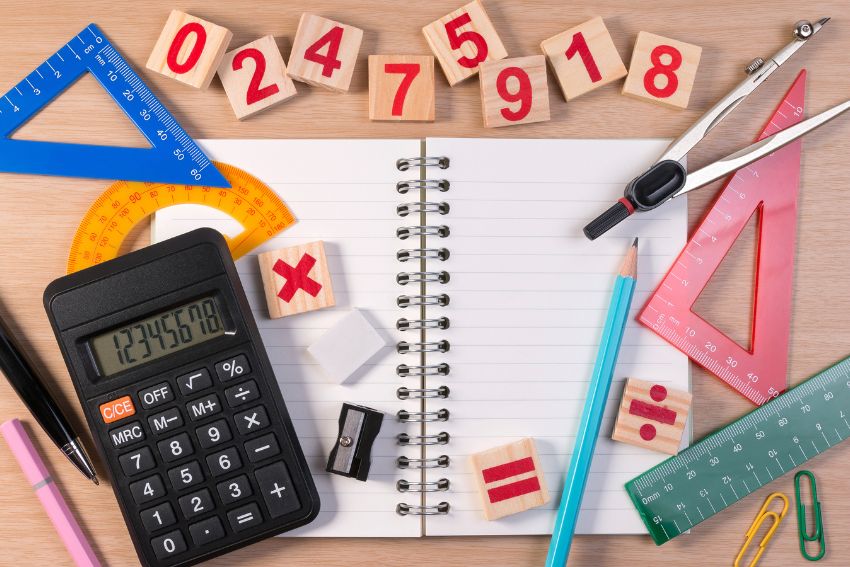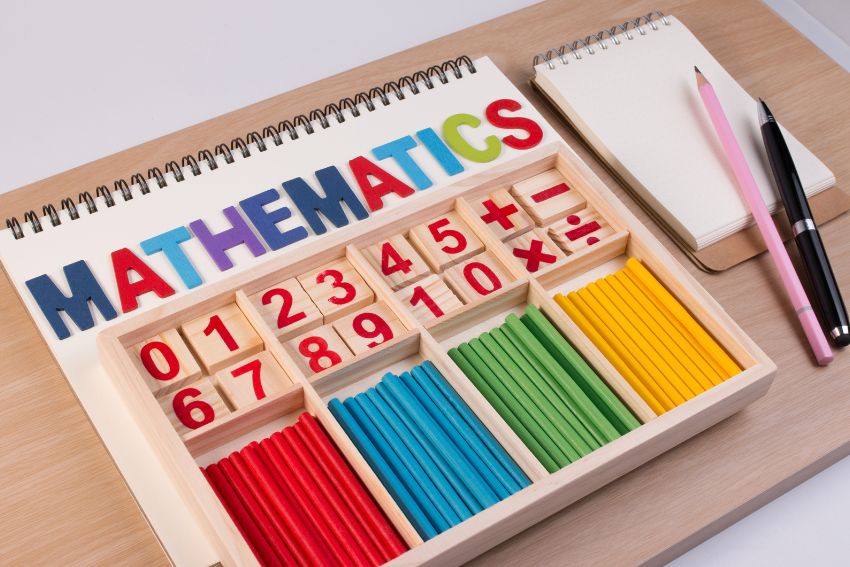Mastering Year 6 SATs Reasoning Questions: Comprehensive Guide
Year 6 SATs reasoning questions play an important role in testing a child’s ability to apply maths skills in problem-solving situations. Unlike straightforward calculations, these questions require logical thinking, making them one of the most challenging parts of Year 6 maths.
With SATs Week 2025 approaching, early preparation can make a huge difference. Practising different question types helps students feel more confident and ready for exam day. Understanding how to break down problems, apply maths strategies, and check answers carefully can improve accuracy and performance.
In this guide, we’ll explore everything parents and students need to know about Year 6 SATs reasoning questions. From question types to sats revision tips, we’ll provide valuable insights to help students succeed.

Understanding Year 6 SATs Reasoning Questions
In reality, year 6 SATs reasoning questions test more than just maths skills–they assess a student’s ability to think logically and solve real-world problems. These questions go beyond simple calculations, requiring students to understand concepts, apply them correctly, and explain their reasoning.
What Are Reasoning Questions?
In maths reasoning SATs, students must use their problem-solving skills to tackle multi-step questions. Instead of just working out sums, they need to identify patterns, interpret data, and make logical decisions. These questions often involve word problems, number puzzles, and real-life scenarios, helping children develop the ability to think critically about numbers.
Year 6 SATs Reasoning Questions: Format and Structure
The Year 6 SATs reasoning questions are spread across two separate papers, each lasting 40 minutes. Questions come in different formats, including:
- Word Problems – Real-life situations requiring addition, subtraction, multiplication, or division.
- Multi-Step Problems – Questions that need more than one operation to find the answer.
- Fractions, Decimals, and Percentages – Converting between them and solving percentage-based problems.
- Measurement and Geometry – Using shapes, angles, and units of measurement in calculations.
- Data Interpretation – Understanding graphs, charts, and tables to extract information.
So, each question is designed to test mathematical fluency, problem-solving ability, and reasoning skills. The more students practise different question types, the easier it becomes to recognise patterns and apply the right strategies in the exam.
Importance of Regular Practice
Preparing for Year 6 SATs reasoning questions isn’t just about knowing maths–it’s about practising regularly to build confidence and improve problem-solving skills. The more students engage in Year 6 SATs revision, the more comfortable they become with different question types.
Many students find SATs reasoning questions in Year 6 challenging because they require more than just calculations. However, consistent practice helps children become familiar with the format, wording, and problem-solving steps. When students regularly tackle different reasoning problems, they gain confidence and feel less anxious during the exam.
In addition, regular practice helps students improve weak areas. Some may find word problems tricky, while others might need extra support with fractions, percentages, or multi-step problems. By reviewing mistakes and working on weaker topics, students can focus their revision on where it’s needed most.
Therefore, parents and teachers can track progress by using SATs reasoning questions Year 6 practice worksheets. Recognising strengths and weaknesses early means students can get the right support before SATs Week 2025, helping them feel fully prepared.

Types of Reasoning Questions in year 6 SATs
As a matter of fact, reasoning questions SATs Year 6 come in different formats, testing a child’s ability to apply maths skills in various ways. These questions require logical thinking, problem-solving, and a strong understanding of KS2 Year 6 SATs reasoning questions.
Year 6 SATs Reasoning Questions: Single-Step Problems
Firstly, some reasoning questions require just one mathematical operation to solve. These are often straightforward and focus on basic addition, subtraction, multiplication, or division.
Example: Lily has 24 apples. She gives 8 to her friend. How many does she have left?
✔ Answer: 24 – 8 = 16 apples
Year 6 SATs Reasoning Questions: Multi-Step Problems
Secondly, multi-step problems require more than one operation to find the final answer. These questions often combine fractions, percentages, or ratios, making them more challenging.
Example: A school has 240 students. 25% of them walk to school. How many students walk to school?
✔ Step 1: 25% of 240 = (240 ÷ 100) × 25 = 60 students
Year 6 SATs Reasoning Questions: Word Problems Involving Measures
Then, students are asked to solve questions involving real-life scenarios where they must calculate answers using length, weight, time, or capacity.
Example: A train leaves at 2:45 PM and arrives at 4:20 PM. How long is the journey?
✔ Answer: 4:20 PM – 2:45 PM = 1 hour 35 minutes
Geometry and Data Interpretation
Besides, some SATs reasoning questions Year 6 test shape properties, angles, coordinates, and data handling. Students may need to read graphs, interpret charts, or calculate perimeters and areas.
Example: A rectangle has a length of 8 cm and a width of 3 cm. What is its perimeter?
✔ Answer: (8 + 3) × 2 = 22 cm
Thus, by practising these different types of KS2 Year 6 SATs reasoning questions, students can improve their accuracy, speed, and problem-solving skills in time for SATs Week 2025.

Effective Strategies for Tackling Reasoning Questions
It is true that, many students find Year 6 SATs reasoning questions tricky because they require more than just maths skills–they demand logical thinking and problem-solving. So, the key to success is practising regularly and using the right techniques. Below, there are some strategies to help students feel confident and prepared for SATs UK.
Reading Year 6 SATs reasoning questions Carefully
Before solving any problem, students must take their time to read the question properly. Many mistakes happen because of misreading key details or rushing through the problem. Encourage students to:
- Underline important information like numbers, keywords, and operations.
- Look for hidden clues in word problems, such as “more than,” “less than,” or “twice as much.”
- Double-check units in measurement questions to avoid simple errors.
Accordingly, after understanding what is being asked, students can avoid mistakes and solve problems with greater accuracy.
Breaking Down the Problem
Some Year 6 reasoning practice questions are multi-step, meaning students need to solve one part at a time. Instead of feeling overwhelmed, they should:
- Identify each step needed before rushing to answer.
- Use simple sketches or diagrams to visualise complex problems.
- Write down calculations clearly instead of doing everything mentally.
For example, if a question involves finding percentages and then adding values, students should solve one step first before moving on. Breaking it down makes even the toughest SATs revision questions easier to manage.
Checking Work Thoroughly
One of the most common SATs mistakes is rushing and not checking answers. Students should always:
- Go back over calculations to spot errors.
- Use the inverse operation (e.g., checking addition with subtraction) to verify the answer.
- Re-read the question to make sure they fully answered what was asked.
Additionally, taking a few extra seconds to double-check work can prevent careless mistakes and improve sats scores.
By using these strategies, students can approach Year 6 SATs reasoning questions with confidence. Practising these techniques regularly will make a big difference in performance and reduce stress on exam day.
Resources for Practice and Preparing for SATs Week 2025
In reality, preparing for Year 6 SATs reasoning questions requires regular practice, structured revision, and a balanced study plan. The right resources help students build confidence and improve problem-solving skills.
Online Practice and Revision Guides
Furthermore, interactive practice tests and maths reasoning worksheets help students familiarise themselves with question formats. Many websites offer year 6 reasoning questions with answers PDFs, making it easier to track progress. SATs Revision guides with step-by-step solutions are also useful for targeted learning.
Planning for SATs Week 2025
A structured study timetable helps students revise effectively. Breaking topics into smaller sections and practising daily ensures steady progress. As SATs Week 2025 approaches, balancing study and rest is essential. Short breaks, good sleep, and stress-free activities keep the mind fresh and improve focus.
As a result, by using the right resources, practising regularly, and maintaining a steady routine, students can feel prepared and confident for their SATs.
Additional Support for Year 6 SATs Reasoning Questions
Preparing for Year 6 SATs reasoning questions is easier with the right support, and both schools and parents play a key role in helping students feel confident and ready for the exams.
In fact, many schools provide extra resources such as study groups, additional classes, and teacher support. Encouraging students to participate in these sessions can help them strengthen their Year 6 maths skills and improve their ability to tackle reasoning questions effectively. Seeking guidance from teachers and discussing difficult topics with classmates can also make a big difference in understanding challenging concepts.
Besides, parents can support their child’s Year 6 SATs revision by creating a positive and structured study routine at home. Encouraging daily practice without pressure, using real-life examples to reinforce maths skills, and celebrating progress can help boost motivation. A strong support system at school and home ensures students stay focused and confident as they prepare for Year 6 SATs reasoning questions.
Conclusion
To sum up, success in Year 6 SATs reasoning questions comes down to consistent practice, effective revision, and the right support. By using the strategies discussed, students can develop their problem-solving skills and gain the confidence needed to tackle even the most challenging questions.
So, as SATs Week 2025 approaches, focusing on Year 6 SATs revision will help students feel prepared and reduce exam stress. Practising different question types, reviewing mistakes, and using high-quality resources will make a real difference. For those needing extra guidance, online KS2 maths tutors can provide personalised support to strengthen weak areas and build confidence.
Finally, the key to success is staying consistent, believing in your abilities, and never giving up. Every bit of effort put into preparation brings you one step closer to achieving great results in Year 6 SATs!
FAQs:
What does SATs stand for?
SATs stands for Standard Assessment Tests. These are national exams taken by Year 6 students in England to assess their skills in maths, English, and reasoning.
What is the SAT reasoning test?
The SAT reasoning test is an exam used for university admissions in the US. It is different from the Year 6 SATs reasoning questions, which assess problem-solving and maths skills in UK primary schools.
How long is SATs reasoning?
The Year 6 SATs reasoning test consists of two papers, each lasting 40 minutes. These papers assess logical thinking and problem-solving using maths skills.
How to prepare for SATs?
To prepare for Year 6 SATs, students should practise past papers, work on reasoning questions, and follow a structured revision plan. Using revision guides, online resources, and KS2 maths tutors can help improve confidence and performance.








